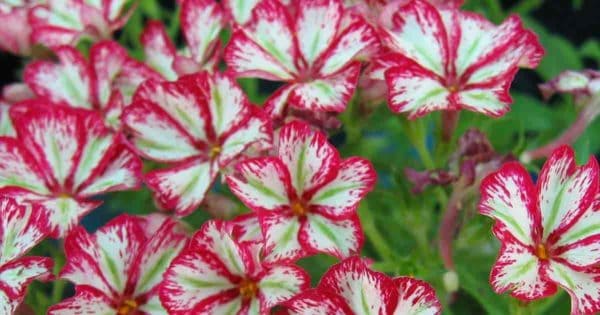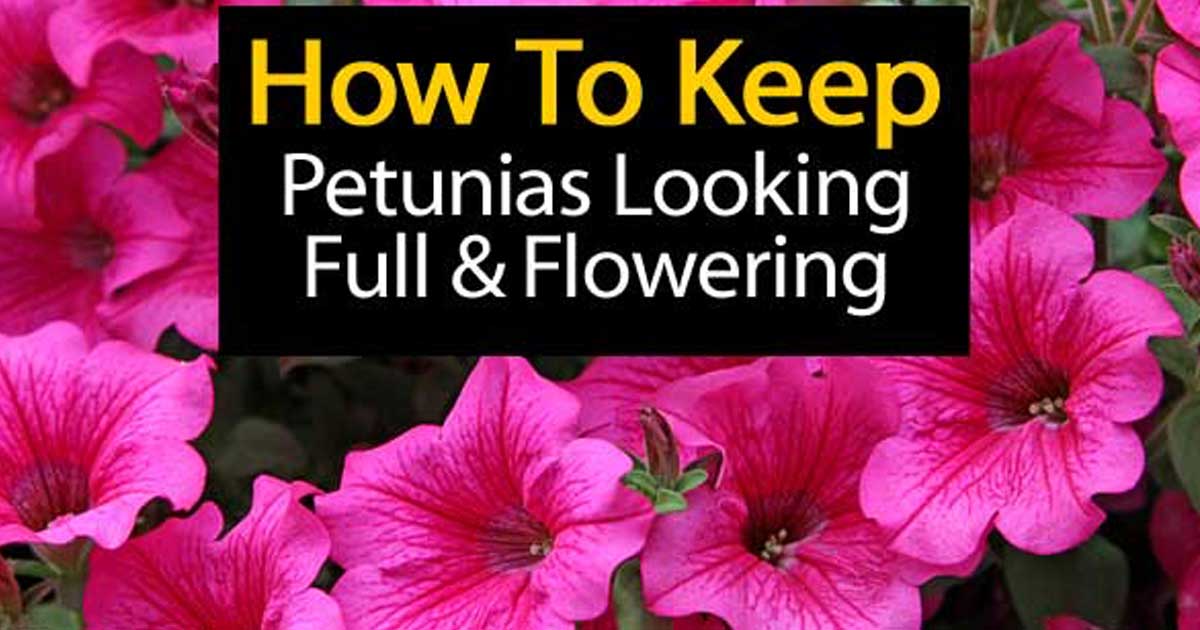A family with a lot of diversity, hummingbirds are little dynamo species fluttering in and out of sight.
They are truly remarkable and fascinating to watch as they dash in and out of garden lush with gardens.
- How can you attract hummingbirds to your garden?
- What annual flowers can be planted to invite hummingbirds to visit?
- Are There annuals to attract hummingbirds?
- What perennials attract hummingbirds?

Even though they love hunting for tiny insects, it’s the nectar in saccharine flowers they prefer.
There are various species of annuals you could plant in your yard and turn it into a hummingbird garden.
In addition to these tiny wonders of nature, other birds will also pop in for a little sip of the nectar.
To make sure your garden is welcoming for our avian friends, add a shallow birdbath or a hummingbird feeder.
Scarlet sage (Salvia splendens)
Scarlet sage or tropical sage is a member of the Lamiaceae family.

Known for its bright red flowers, these plants are native to Brazil.
Their lush, green perennial foliage makes the crimson flowers even more striking.
They do great as bedding plants with long-tubed bright red flowers growing on dense, erect racemes from summer to fall.
Add them to flower beds, cutting gardens, or plant them compactly in containers.
Make sure you grow them in well-drained soil.
They do well under both full sun and partial light.
The bright flowers will look gorgeous as sunlight falls on them in the day, and hummingbirds and bees flit by.
Tips on Salvia Splendens Care
Morning-glory (Ipomoea purpurea)
The common morning glory or purple morning glory blooms trumpet-shaped flowers from June to October.

During its bloom time, you will enjoy predominantly blue to purple flowers with purple centers.
The name morning glory is given as the lovely blooms open in the morning when the sun is bright and gentle, closing as afternoon arrives.
They will do their best and thrive in well-drained soils under the full sun.
Make sure you keep the soil moist but not wet and provide the vine some support.
They will do wonders for your garden when planted near fences, decks, trellises, or in hanging baskets.
Details on Growing The Morning Glory Vine
Nasturtium (Tropaeolum majus)
Also known as Indian cress or monks’ cress, Nasturtium is a flowering plant originating from Bolivia, near north Colombia.

They are incredibly easy to grow with a fast growth rate, producing five-petaled yellow to orange flowers.
Against its disc-shaped, green to glaucous green leaves, the bright flowers put on a great show from spring until late fall.
During this time, plant them in flower beds, borders, or gardens.
They also do well in mass planting and as ground covers when placed in well-drained soil, under the full or partial sun.
Details on Nasturtium Care
Impatiens, Red and Deep Pink
Impatiens is a genus with over 1,000 different flowering species.

Distributed across the northern hemisphere, it comes from the Baldaminaceae family and is commonly called jewelweed, touch-me-not, snapweed, and patience.
The flowers bloom in shades of reds and pinks during springtime, brightening up the garden until the first fall frost.
With well-drained soil and partial to full shade, these can brighten up any dark corner of your landscape in containers and flower beds.
Learn more about Dwarf Impatiens
Drummond phlox (Phlox Drummondii)
Single or double, the rounded Drummond phlox flowers have five flat, star-shaped petals.

Being lightly scented, they quickly become a favorite among the little nectar-loving birds flying into your garden.
The trumpet-shaped flowers put on a great showy display from April to early July.
In hot climes, the plant tends to decline as the temperatures rise but continue to flower throughout the summer in colder environments.
Add them to your flower beds and borders or use them for edging or ground cover.
They are also great container plants.
Either way, they are the perfect addition to any hummingbird garden.
More on Phlox Drummondii Care
Cypress vine (Ipomoea Quamoclit)
Native to tropical America, the Cypress vine is a twining plant from the morning glory family.

The bright and delicate flowers against the striking green foliage are one reason it’s grown ornamentally across the U.S.
The tubular flowers are scarlet red with five-pointed lobed flaring open in the center.
They are also called cardinal climbers as they look great growing on trellises and along walls, supported with twines.
With average to medium, well-drained soil, these vines thrive under the full sun.
Details on Caring For Ipomoea Quamoclit (Cypress Vine Care)
Firebush (Hamelia patens)
Ranging between a perennial shrub and a small tree, firebush comes from the coffee family and is native to tropical and subtropical America.

One of the common names of the plant is a hummingbird bush.
What could be better for a hummingbird garden than this?
It is tolerant of high heat and grows lovely in the well-drained soil under the full sun or partial shade.
The name firebush is a reference to the plant’s firecracker-like flowers.
These bloom in terminal clusters from summer until fall.
Add them to hedges, borders, beds, or containers.
Learn more about Hamelia Patens (Firebush)
Cleome (Cleome Hassleriana)
Also known as spider flower, spider plant, or grandfather’s whiskers, cleome plants are known for their interesting appearance.

- The showy flowers start appearing June and last until fall’s first frost.
- The flowers bloom in racemes of four-petaled, spider-like flowers.
- The blooms are lovely lavender to pink color with protruding stamens.
- The plant is winter hardy in USDA hardiness zones 9-10, doing their best under the full sun in dry to medium soil.
- They look great massed or in beds, containers, foundations, and borders in gardens.
Details on Growing Spider Flower (Cleome Plant)
Petunias, Red or Pink
Petunias are great long-term plants for any garden. They are popular for a reason.

The bright pastels colors of the flowers brighten up outdoor spaces, in both gardens and containers, from May to fall.
They are slightly fragrant and are great for attracting both butterflies and hummingbirds.
They are hardy to Zones 10 and 11, thriving in well-drained soil in full sun to light shade.
If you have a yard or large flower beds, petunias are great as ground covers as well.
Learn more about Colorful Petunia Care
Mexican Shrimp Plant (Justicia Brandegeeana)
Native to Mexico, the shrimp plant is known for its showy flower bracts.

The name refers to the flowers’ pinkish shade and the way they grow as they resemble large shrimps.
They are great as houseplants and in landscaping.
They grow in moist, humusy, and well-drained soils under full sun to part shade.
The flowers emerge from bracts and have speckled maroon throat, full of nectar and great for attracting hummingbirds.
Learn Details on Justicia Brandegeeana Care
Flowering tobacco, red or pink (Nicotiana alata)
Hardy to USDA Zones 10 to 11, flowering tobacco plants bloom showy and fragrant flowers from June to the last frost.

The flowers open at night and come in a variety of colors, including red, pink, lime-green, and white.
The plant is relatively low-maintenance, growing well in organically rich and moist soils in full sun and part shade.
While they are great in flower best and borders or plant them near patios or decks for added color.
Details on Growing Nicotiana Alta (Flowering Tobacco Plant)
Indian paintbrush (Castilleja coccinea)
The Indian paintbrush is given the name for its flowers.
In bloom from spring to early summer, these flowers on this plant resemble a paintbrush dipped in orange-red color.

They appear atop stems in dense spikes, which are surrounded by real flowers.
They are lovely in gardens and prairies, very easy to naturalize in native gardens.
The color of the spikes looks striking against its foliage, attracting hummingbirds and adding some brightness to your landscaping.
Pentas (Pentas lanceolata)
These seasonal bloomers are herbaceous perennials native to the Arabian Peninsula – hence the common name Egyptian starcluster.

- The plant itself does splendidly in average to medium, well-drained soils under full sun.
- However, they can tolerate light shade.
- The flowers are typically red, pink, lilac, and magenta-colored and very rarely bloom white.
- They grow on branched in rounded clusters containing tiny flowers.
- Besides hummingbirds, these are also great at attracting butterflies.
- Grow them in containers or flower beds.
Learn more about Pentas Plant Flower Care
Geraniums, red and pink ones
Geraniums are one of the most popular flowering plants grown by many gardening enthusiasts.

They look lovely in woodland gardens, flower beds, and borders, and even as mass ground covering.
The flowers have five lobes and pink to lilac in color, creating a soft contrast against the dark leaves.
They are easy to grow and take care of, thriving in medium, well-drained soil in full sun to part shade.
Details on Geranium Plant Care
Four-o’clocks (Mirabilis Jalapa)
Four-o’-clocks are given this common name as its beautiful flowers open in the late afternoon – around four.

They stay open until the next morning, attracting butterflies and hummingbirds to the garden for pollination.
They are attractive when planted in groups or as a single specimen.
Mix them with other annuals and flowering plants in borders or flower beds.
Or plant single specimens in containers for your porch or deck.
Be careful if you have pets or children around as all parts of the plant are poisonous.
More on Mirabilis Jalapa Care